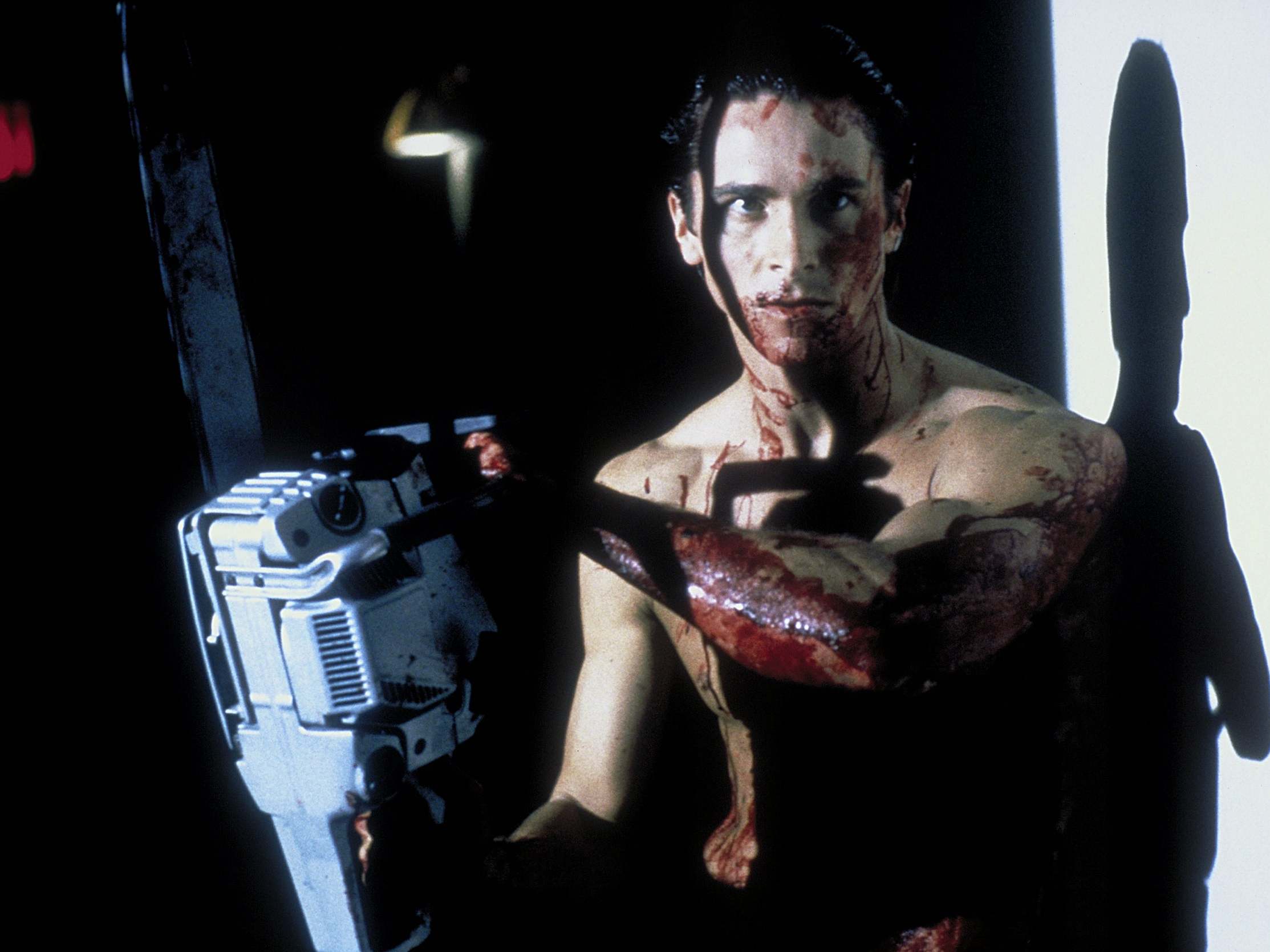The Indy Film Club: American Psycho was a canary in the coalmine for the Trump era
The next pick in our new weekly film social is Mary Harron’s ‘American Psycho’, which just celebrated its 20th anniversary. Clarisse Loughrey explains why it still resonates


Donald Trump’s shadow looms over American Psycho. In Mary Harron’s razor-sharp satire, released 20 years ago, finance bro-cum-psychopathic killer Patrick Bateman worships the man. His eyes always dart nervously around the streets and high-end restaurants of New York City, on the lookout for him or his then-wife Ivana (the story is set in the late 1980s). He’s an even greater feature of Bret Easton Ellis’s original novel. Bateman keeps a copy of The Art of the Deal on his desk and craves an invitation onto the Trump yacht.
Would he still be Trump’s most ardent supporter today? When Rolling Stone posed the question to Ellis in 2016, he wasn’t so sure. Six company bankruptcies later, Trump has lost much of the elitist lustre that made him such an aspirational figure to wannabe billionaires. But it’s altogether futile to imagine a Bateman of 2020. As the film’s screenwriter Guinevere Turner has pointed out, the character “is less a person and more a phenomenon. He is the personification of his environment.” He’s the comprehensive manifestation of every narcissistic, capitalist, supremacist impulse that drives Trump and his ilk. It’s why American Psycho still fascinates us today – funny, frightening and furious in every blood-soaked turn.
Looking at Trump’s rise to power, you’ll find it hard not to think of Ellis’s book as a kind of canary in the coal mine. But, back in 1991, when the book was published, it all seemed too repulsive to bear. American Psycho’s tale of a fat-cat investment banker who splits his time equally between fetishising consumer goods (from Eighties pop stars to designer suits) and committing sadistic, elaborate murders sparked instant controversy. The book was met with boycotts, bans, scathing reviews and death threats. The New York Times decried it as “a contemptible piece of pornography, the literary equivalent of a snuff flick”.
Ellis had always hoped his readers would be repulsed by Bateman and, by association, the Wall Street lifestyle. But he was too close to the character – in the past, he’s confessed that the book was partly a way for him to confront his own hedonistic, superficial lifestyle. It took someone on the outside to see Bateman as he truly was: a pathetic, risible soul. Who else but a grade-A dork would break out into a sweat over the typeface of a business card? Harron had nothing in common with Bateman but, as an Oxford graduate, she was certainly familiar with the type. And she could replicate it perfectly (is there a touch of bitterness to Ellis’ later insistence that “women can’t direct”?).
The distributor was initially uncomfortable with such an unsympathetic protagonist, despite the fact he’s a serial murderer. At one point, Harron was taken off the project and replaced by Oliver Stone, with plans to depict Bateman as a kind of Jekyll-and-Hyde figure instead. Leonardo DiCaprio was cast, fresh off of 1997’s Titanic. It was, supposedly, feminist icon Gloria Steinem who turned the tide. She invited DiCaprio to a baseball game and begged him not to take the role – playing a man who butchers women would have betrayed his teen girl fanbase.
DiCaprio backed out, then Stone. Lionsgate brought Harron back and let her stick with her original choice for the role: former child star Christian Bale. American Psycho was the ideal stage for an actor so enamoured with complete physical transformation. He worked out relentlessly, ate nothing but chicken, and studied the practised mannerisms of Tom Cruise – who possesses an “intense friendless with nothing behind the eyes”, according to Harron. But behind the mask, Bale allowed the void to grow large and ravenous. He’d later bring a touch of Bateman to his Batman, but the former will always be his greatest role, playing a man whose car salesman grin can so easily give way to white-hot rage.
Bale understood what a parody Bateman was, too. The little shimmy he does before driving an axe into Paul Allen’s (Jared Leto) face was his idea. The character’s merely an amplified version of all the ridiculous men around him. There’s a running joke that they can never tell each other apart. After all, they’ve all got the same swept-back hair and broad-shouldered, pinstripe suits. Not only do Bateman’s crimes blend into the wider tapestry of patriarchal abuse, but they go entirely unpunished. In the end, he cracks and leaves a confessional voicemail to his lawyer. But the next day, the guy doesn’t recognise it’s him and just assumes he’s playing a prank. Because how could a man with such power and status be guilty of the ultimate depravity? That moment strikes close to home now. When Trump said in 2016, “I could stand in the middle of Fifth Avenue and shoot somebody and I wouldn’t lose any voters,” he might as well have been speaking as Bateman.
Join our commenting forum
Join thought-provoking conversations, follow other Independent readers and see their replies
Comments
Bookmark popover
Removed from bookmarks